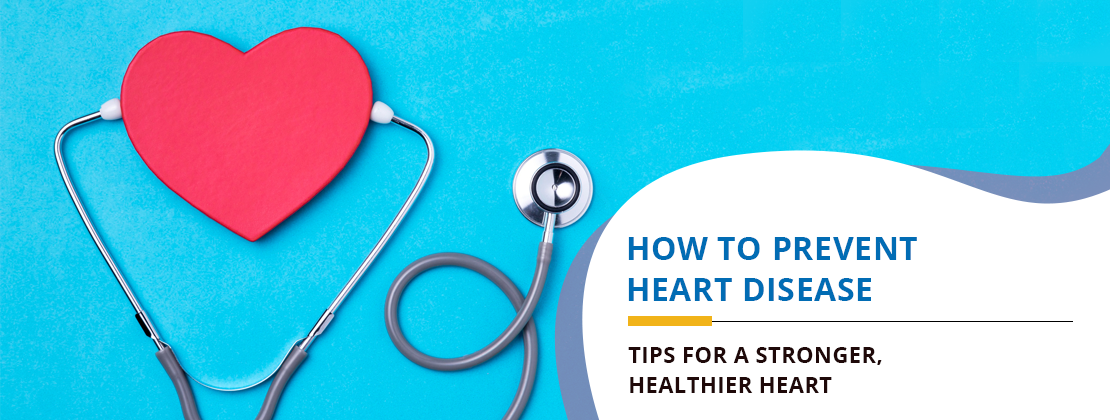
Home / Blog / How to Prevent Heart Disease: Tips for a Stronger, Healthier Heart
Heart disease remains one of the leading causes of death globally, but the good news is that it is largely preventable with simple, consistent lifestyle changes. Understanding how to prevent heart disease is beneficial since, besides longevity, it improves one’s standard of living.
Here is a manual that contains useful and applicable hints on keeping a strong and healthy heart.
Table of Contents
To avoid heart disease, you need to know why it happens and what makes it likely to occur. Heart disease may arise as a result of poor lifestyle habits that have been practised for a long time and also due to some inherited factors or illnesses. However, with awareness and proactive choices, prevention and control of cardiovascular disease can be within your reach.
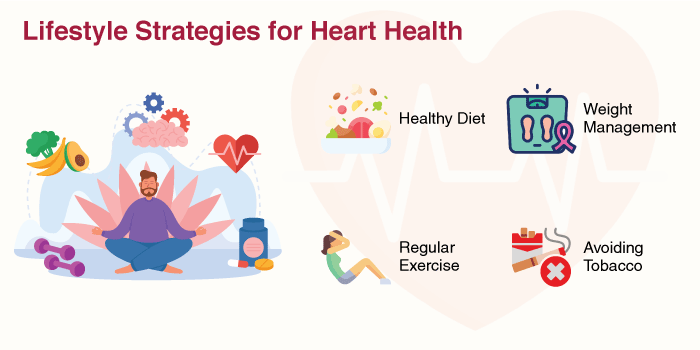
Your diet significantly impacts heart health. Consuming foods high in saturated fats, added sugars, trans fats, and sodium may increase the chances of contracting heart disease. To create a diet that promotes good heart health:
Just by making a simple swap, such as changing white bread to whole wheat bread or replacing soda with water, one can achieve significant results in the long run.
Staying active is essential for a healthy heart. Exercise helps us maintain optimum weight, lowers high blood pressure, and makes the heart stronger.
If you are a beginner in exercise, begin with something little, like walking for 10 minutes each day, and then slowly raise both the time and intensity.
Being overweight, especially in the belly region, makes it more likely for you to have diseases such as hypertension, hypercholesterolemia, and diabetes, which are all risk factors for coronary heart disease.
Smoking is a major cause of heart disease. The substances found in tobacco are capable of harming your veins by causing the development of some fatty materials in them, hence posing higher chances for either stroke or heart attack.
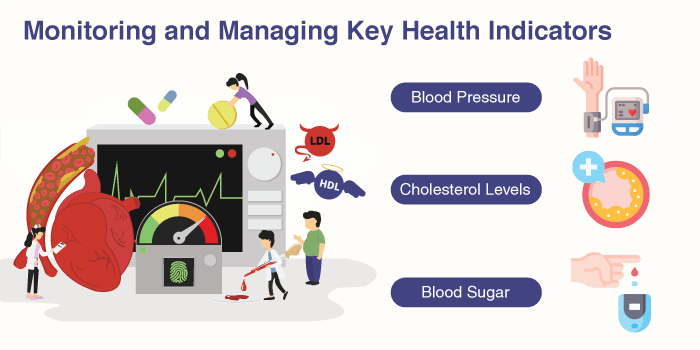
High blood pressure (hypertension) puts extra strain on your heart and blood vessels.
Plaque may accumulate in blood vessels and cause heart attacks due to abnormal cholesterol levels.
Elevated blood sugar, particularly in people with diabetes, damages blood vessels and nerves that control the heart.
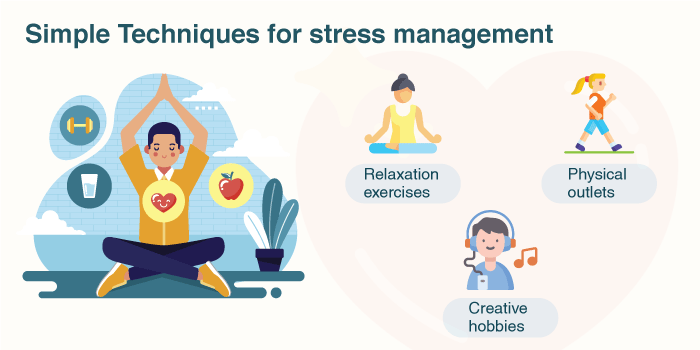
Continuous stress can increase blood pressure, cause unhealthy habits such as eating too much, and disrupt sleep—all these are dangerous to the heart.
Stress leads to the production of cortisol and adrenaline, which increase long-term cardiovascular stress.
Quality sleep allows your body to repair itself, including your heart and blood vessels.
Regular check-ups can help detect potential problems before they become apparent and thus prevent heart disease.
Explore Heart Health Packages at HCG Here: Preventive Heart Checkup – HCG Hospitals
A few research studies indicate that drinking alcohol in moderation could be good for the heart. However, taking too much alcohol is harmful rather than beneficial.
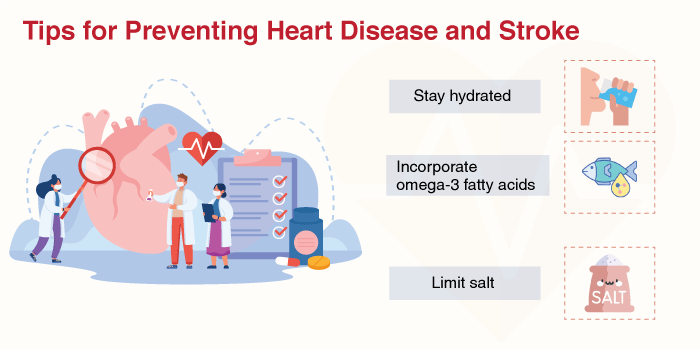
Both heart disease and stroke have common risk factors. Taking care of your overall heart health will lower the chances of getting either disease.
Preventing heart disease requires making the right decisions every day. By adopting a heart-healthy lifestyle—a balanced diet, regular exercise, stress management, and routine medical care—you can significantly lower your risk. Understanding how to prevent heart disease and stroke requires a proactive approach, starting with small, actionable steps.
Take Action Today: Begin with one change, whether it’s adding more vegetables to your plate or taking a short daily walk. Such minor changes may result in increased cardiac strength and improved general health with time. Remember to seek individualised recommendations from a medical professional who knows about your specific health requirements.
HCG Hospitals is one of the best multispeciality hospitals in India, offering advanced cardiac care facilities and expertise. With a dedicated cardiac care department led by some of the best cardiologists in India, we provide comprehensive diagnostic and treatment services to help patients achieve optimal heart health. Our hospitals in Ahmedabad, Bhavnagar, Rajkot, and Hubli serve as centres of excellence for 360-degree cardiac care.